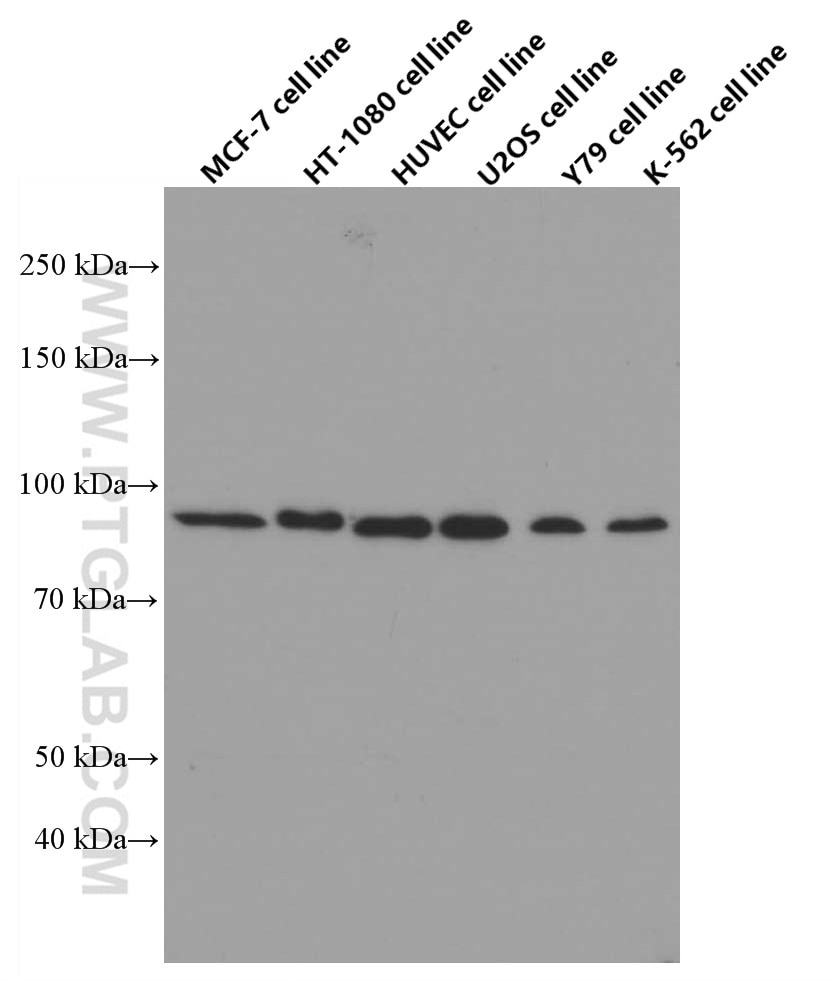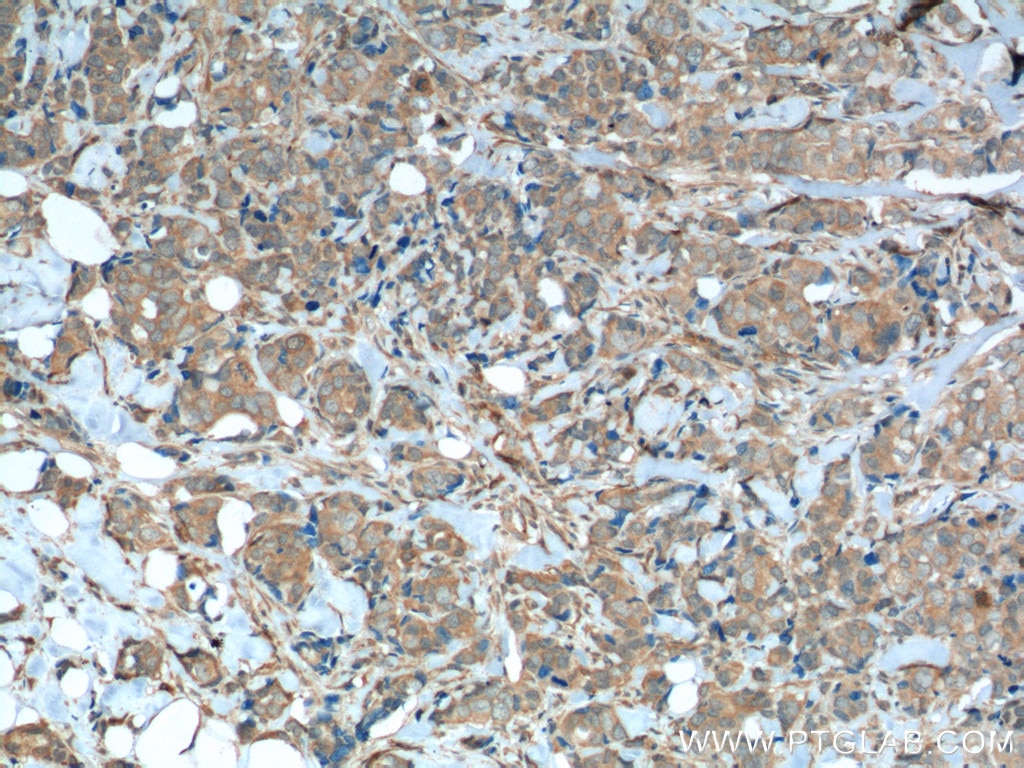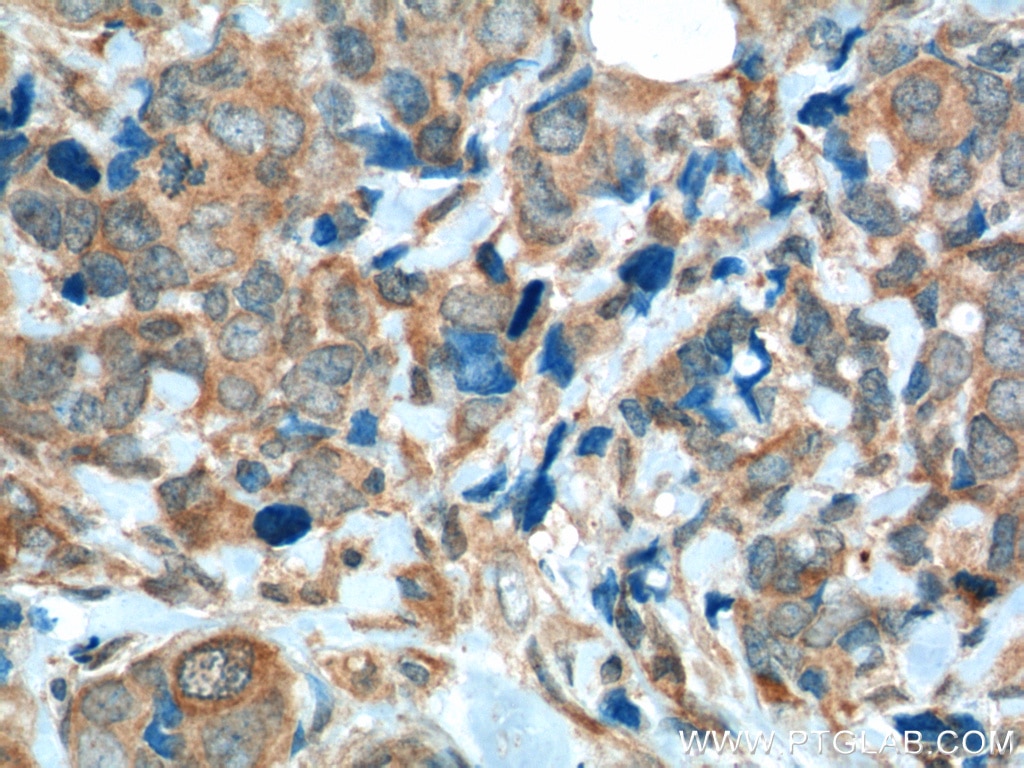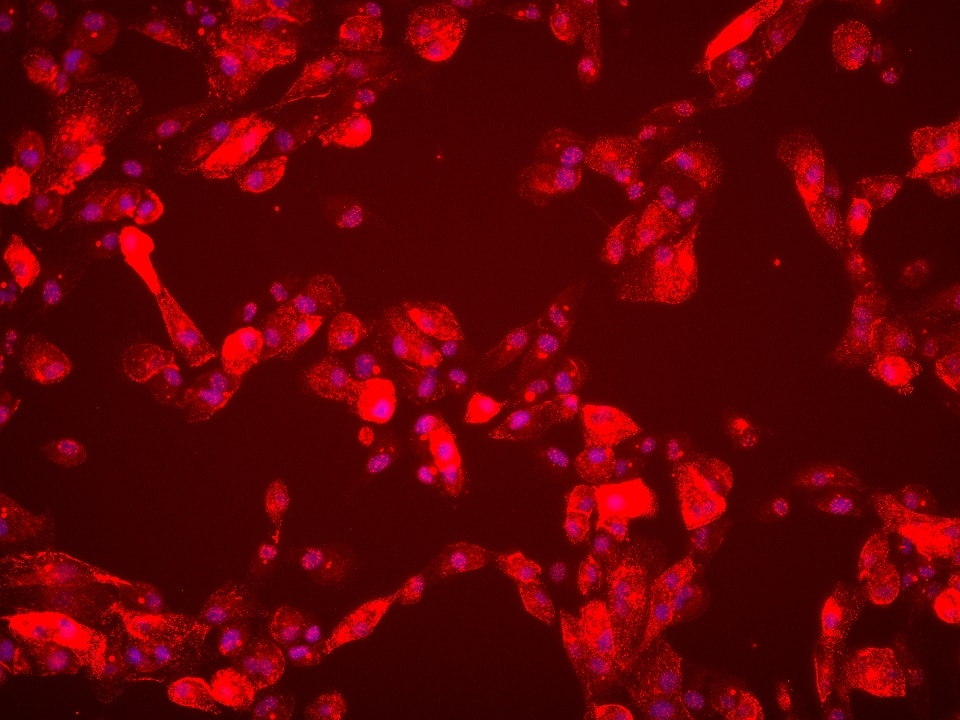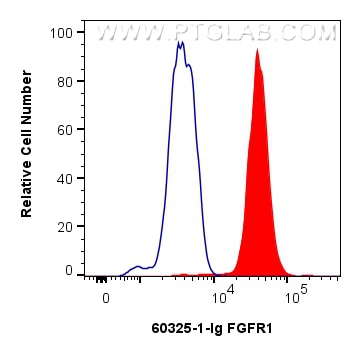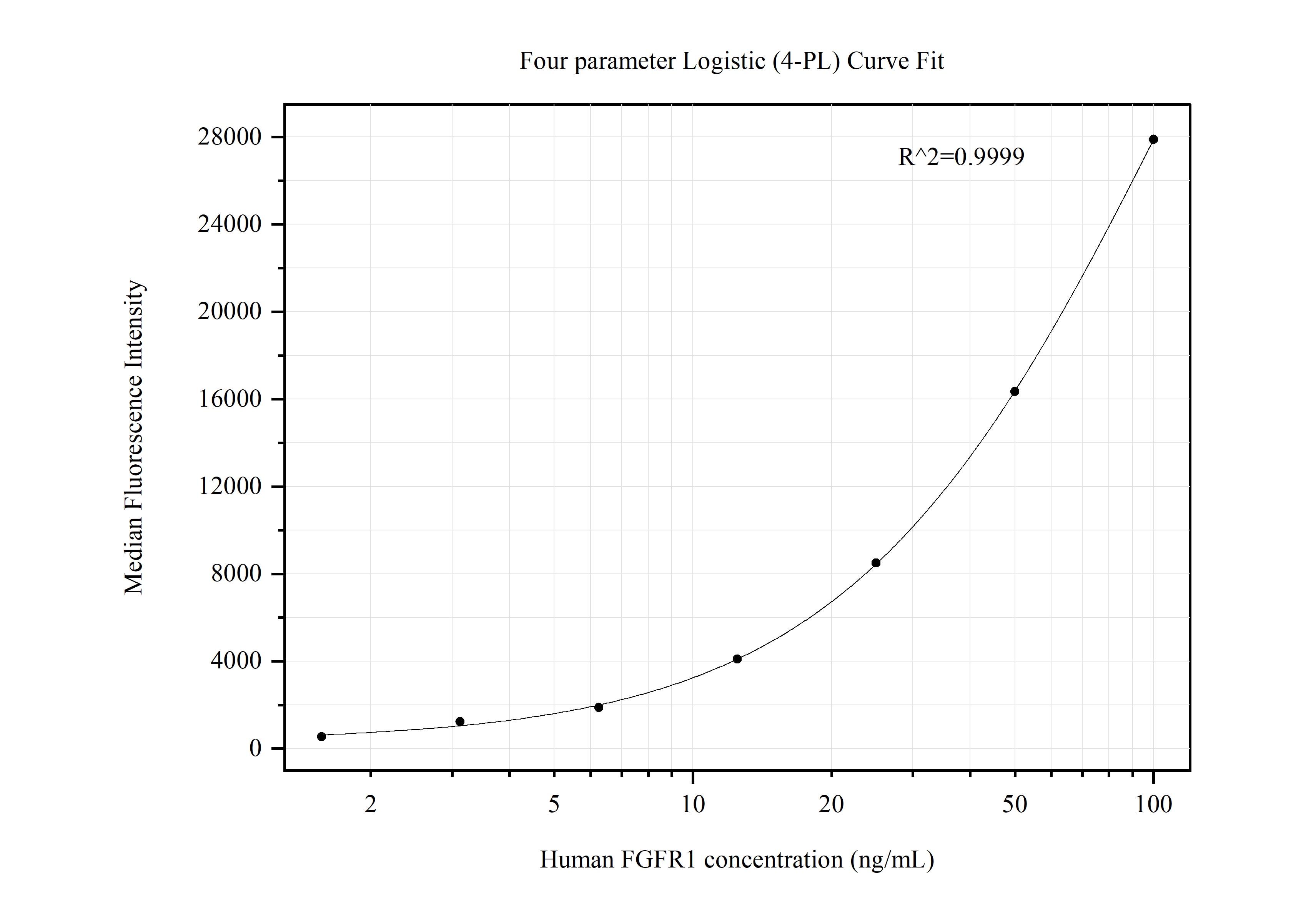Validation Data Gallery
Tested Applications
Recommended dilution
| Application | Dilution |
|---|---|
| It is recommended that this reagent should be titrated in each testing system to obtain optimal results. | |
Product Information
60325-1-PBS targets FGFR1 as part of a matched antibody pair:
MP50453-3: 68982-1-PBS capture and 60325-1-PBS detection (validated in Cytometric bead array)
Unconjugated mouse monoclonal antibody pair in PBS only (BSA and azide free) storage buffer at a concentration of 1 mg/mL, ready for conjugation.
This conjugation ready format makes antibodies ideal for use in many applications including: ELISAs, multiplex assays requiring matched pairs, mass cytometry, and multiplex imaging applications.Antibody use should be optimized by the end user for each application and assay.
| Tested Reactivity | human |
| Host / Isotype | Mouse / IgG2c |
| Class | Monoclonal |
| Type | Antibody |
| Immunogen | FGFR1 fusion protein Ag3646 相同性解析による交差性が予測される生物種 |
| Full Name | fibroblast growth factor receptor 1 |
| Calculated molecular weight | 820 aa, 91 kDa |
| Observed molecular weight | 91 kDa |
| GenBank accession number | BC018128 |
| Gene Symbol | FGFR1 |
| Gene ID (NCBI) | 2260 |
| RRID | AB_2881435 |
| Conjugate | Unconjugated |
| Form | Liquid |
| Purification Method | Protein A purification |
| UNIPROT ID | P11362 |
| Storage Buffer | PBS only , pH 7.3 |
| Storage Conditions | Store at -80°C. |
Background Information
Fibroblast growth factor receptor 1 (FGFR1) is a tyrosine-protein kinase that acts as a cell-surface receptor for fibroblast growth factors. FGFR1 has been implicated in diverse biological processes including embryonic development, cell proliferation, differentiation, migration, and tumorigenesis. Mutations in the FGFR1 gene have been associated with Pfeiffer syndrome, Jackson-Weiss syndrome, Antley-Bixler syndrome, osteoglophonic dysplasia, squamous cell lung cancer, and autosomal dominant Kallmann syndrome. Alternatively spliced variants that encode different protein isoforms have been described.
